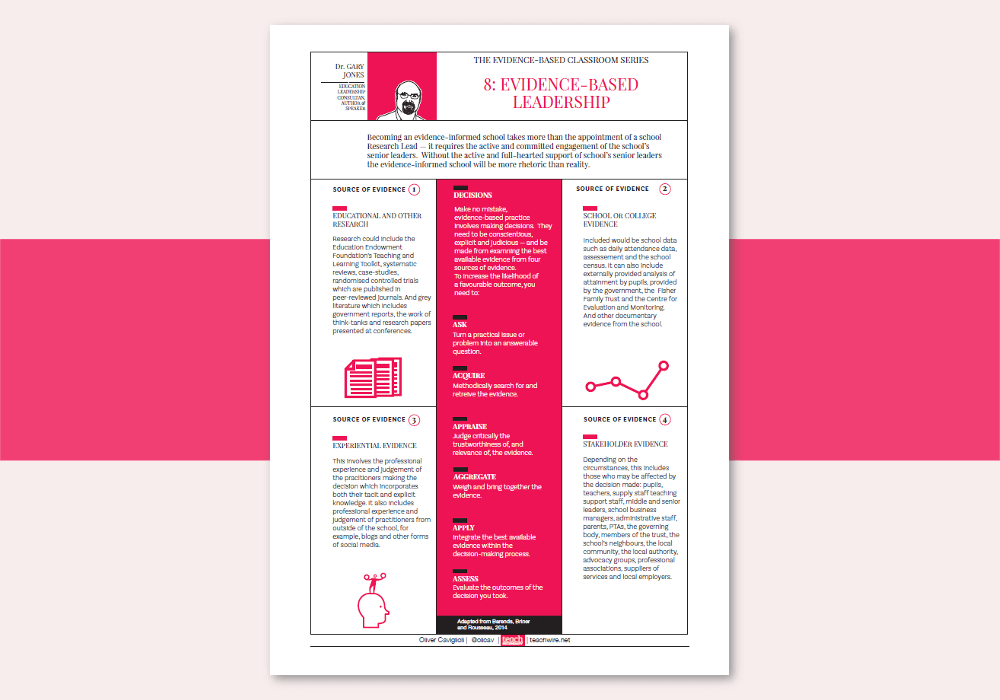Leadership skills – what you can learn from my SLT journey

If you want to succeed as a leader, leave the Trunchbull at home and be open to new ideas, says Charlotte Rowley…

- by Charlotte Rowley
- Principal at St Austin’s Catholic Primary

I made my first foray into senior leadership in 2018, when I became an assistant headteacher at a secondary school.
In some ways, I suppose, like anyone new in a role, I was perhaps a little naive and had a lot to learn, but surely as educationalists this is only a positive?
If you’re not learning anything new, or not excited by it, then how can we inspire others to be enthused about education? (That was my justification, anyway.)
After three years in my first senior leadership role, I made a big decision to move to primary and was fortunate to be seconded as deputy headteacher.
I am now acting principal at another school within our Multi-Academy Company (MAC).
All too often, people think there are huge differences between leading primary and secondary. While, yes, I do agree that there are different challenges, at the heart of every decision is a young person: whether they are three years of age or 18, they are children in our care.
We have a duty to lead everyone down a positive path and give them the best opportunities in their educational journey; culturally, academically, pastorally and personally.
Put simply, leadership is leadership.
Another frequent comment I get as a senior leader is “I couldn’t do it”. So why do we? Well, for a start, the difference that we can make to our pupils’ lives.
Fostering a culture in a school, sharing the vision, working collaboratively, thinking strategically and winning hearts and minds of all stakeholders means there is never a dull moment!
It’s a big responsibility, but seeing the children grow is so rewarding.
Here’s what I think are the most important elements for your leadership journey, whatever Key Stage you work with:
The power of compassion
Sadly, I’ve frequently seen individuals move into leadership roles and lose their way.
A colleague and friend once said to me that she honestly felt that when first becoming a leader she would have to become ‘less kind’ and much more ‘ruthless’.
She of course realised that this was definitely, wholeheartedly NOT the case and I cannot emphasise this enough.
We all have this shared vocation to work with children, and emotional intelligence and empathy are the key ingredients. A dose of each is necessary.
When first stepping into my role as principal, my main priority was to sit down with every member of staff and to get to know every single child: that Mrs A loves yoga, has two children and has worked at the school for twenty years; or Mr B has two dogs, is ambitious, passionate and keen to develop; or that Pupil C has recently discovered a love for art and is keen for my office to be turned into a gallery of pictures and portraits (this has happened by the way, and it’s added a whole new dimension of colour to my walls. An interior designer in the making!).
Leave the Trunchbull to one side and let compassion out.
Leadership advice
The amount of advice available on leadership can be a little overwhelming.
I look back and think that I would have greatly appreciated a concise list and key pearls of wisdom.
Here are some of mine if you so wish to use them:
- Always be open to new ideas and accept that you will be wrong at times!
- Always listen to the staff and of course, the children. I can’t promise the children a yes to ‘no homework forever please Mrs Rowley,’ or the School Council’s desperate request for ‘lime green curtains with pink spots’ for the hall, but I will always listen.
- Always model high standards, for your staff and children, and make no apology for this.
- Think about the last two years and what we can take from it. There was a greater focus on wellbeing during the pandemic and a sense of togetherness among schools and communities. Build on this.
- You’re never on your own – even as a principal or headteacher.
- Ultimately, be YOU! Please always show compassion and love, even when making the difficult decisions.
- Come back to the ‘why’. If a decision will not benefit the children or have a negative impact, put simply, it’s a ‘no’.
So, why do we do it? Why do I love what I do?
Every day is a new discovery. That’s why.
Charlotte Rowley is acting principal at St Maria Goretti Catholic Academy, Stoke-on-Trent. She also has a background working as an English teacher and within senior leadership in secondary schools. Transition and leadership are particular passions.







